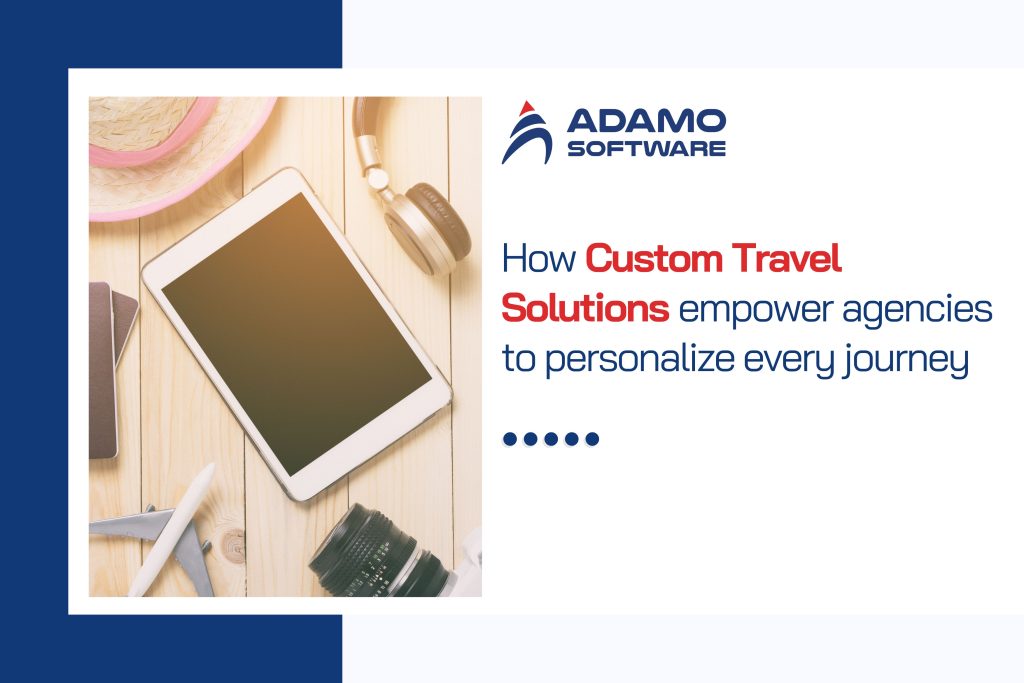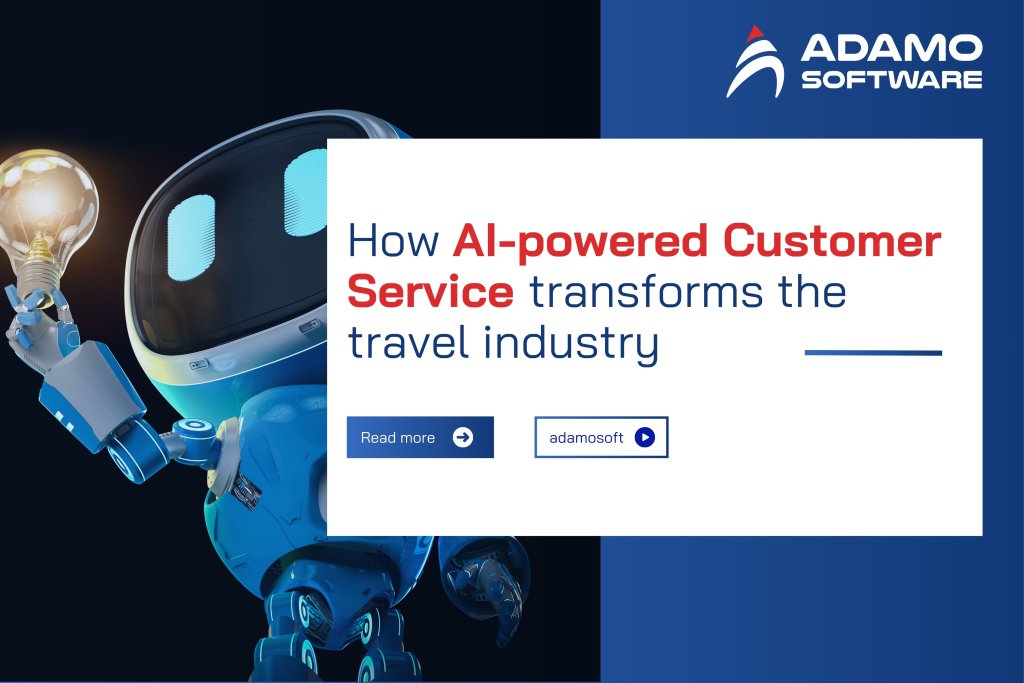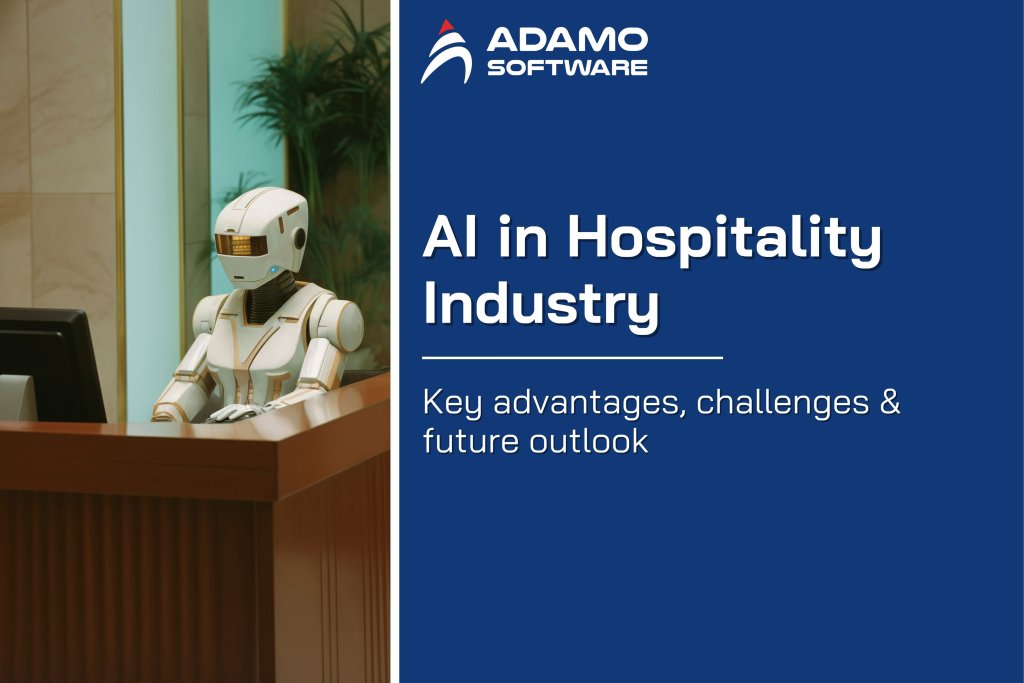What Is Property Management Software: Types, Features, Considerations

As the demand for efficient property management continues to soar, businesses are increasingly turning to innovative solutions to streamline their operations. In fact, according to recent projections, the property management system market is expected to reach a staggering size of 2.70 billion U.S. dollars by 2030. This substantial growth can revolutionize the way property managers operate.
In this article, we will dig into what is property management software, its benefits, and key features that enhance your efficiency and productivity.
So, if you’re seeking to optimize your processes or venture into the industry, understanding the potential of property management system is crucial in staying ahead in your industry, keep reading.
I. What Is Property Management Software
Property management software is an app, program, cloud-based software tool that automates back-office and administrative processes for property managers. Its common features are electronic leases, maintenance tracking, online tenant portals, document storage and online payment processing.
PMS software brings together all the essential functions of property management into one program, saving time and money by eliminating the need for additional tools and streamlining day-to-day tasks. Regardless of the scale of your property management operations, this software can help you effectively manage properties, tenants, and finances.
With property management system, you can simplify trust accounting, maintenance, inspection, communication, and reporting tasks. These functions allow you to focus on important aspects such as nurturing leads, growing your rent roll, and providing excellent service to your clients.
II. Who Use Property Management System
1. Property owners/landlords who manage their portfolio in-house
Property owners who handle the management of their properties themselves can use property management software to automate back-office tasks and manage multiple properties efficiently.
2. Managing agents
Commercial and residential managing agents who handle property management on behalf of property owners can also utilize property management software. These agents are hired by property owners to oversee the day-to-day operations of the properties and ensure smooth management.
3. Commercial occupiers
Commercial occupiers who need assistance in keeping track of their rent, portfolio maintenance, and finances can benefit from PMS system as it provides features like maintenance tracking and online payment, which can streamline their property management tasks.
Also read 15 Key Features of Hotel Property Management System (Hotel PMS)
III. Why Should Business Invest in PMS System
If you’re wondering whether you need property management software, there are a few key indicators to consider.
One important factor is the size of the portfolio you manage. The larger your portfolio, the greater the need for a dedicated property management system.
In addition, there are other common triggers that may indicate a need for property management software:
– Outdated or unsupported current system: If your current system is no longer being supported or is outdated, it can create risks such as a lack of future support if something goes wrong and missing out on new features and functionality.
– Using separate accounting and property management systems: If you’re using separate systems for accounting and property management, you may encounter issues such as data duplication errors or difficulty synchronizing data. Many people choose to switch to a single system to address these challenges
– Incompatible property management system: If you have a property management system in place that is not the right fit for your business, you may face various issues. It’s important to have a system that aligns with your specific needs and requirements.
Benefits of Property Management Software
1. Promoted transparency and secure
It is 2024 now. Local servers are no longer common in the property management system world. Instead, data is securely stored in data centers where dedicated teams ensure the safety and availability of your server 24/7. To better understand this shift, consider whether you would prefer to keep your money under your mattress or in a bank.
When selecting a property management solution, it’s important for companies to look for features that prioritize the encryption of data and messages. This helps protect users’ sensitive financial information from unauthorized access. What’s more, these tools can enhance payment transaction security by implementing one-time passwords (OTPs).
2. Enhanced maintenance monitoring
Some argue that repairs are not a priority for the average landlord. It is often seen as a costly expense without much value. However, proper maintenance is crucial for tenant satisfaction and can prevent the deterioration of a building. Property managers strive to avoid such problems.
Fortunately, real estate software solutions like PMS can address this issue by providing easy access to information through cloud integration services. When a work order is connected to the network, cloud-based software automatically alerts you to the problem. These services often offer tenants the ability to generate tokens, similar to using a customer support portal.
3. Easier payments for tenants and contractors
Implementing electronic rental payments simplifies the entire process for both tenants and your business. Allowing tenants to pay online eliminates the need for in-person meetings or specific hours, saving time on accepting, processing, and depositing payments.
While some may be hesitant about automatic deductions, the convenience of making payments without meeting in person can still be appreciated. This benefit also provides payment reporting and accessible records for both contractors and tenants, aiding in resolving any rent payment conflicts.
4. Improved customer satisfaction
Property management software can improve customer satisfaction by enhancing customer service, product quality, and value proposition. For instance, PMS provides a tenant portal where tenants can make payments, submit requests, and communicate with property managers. It also enables online applications, lease agreements, and electronic signatures.
Besides, PMS may offer loyalty programs and discounts for repeat customers, while collecting feedback and reviews. A report by the RealPage Company has shown that approximately 81% of renters expressed increased satisfaction with their property manager due to the availability of online payment options.
IV. Main Types of Property Management Software

1. Based on Deployment: On-premise PMS and Cloud-based PMS
Two types of property management system software deployment can be distinguished: on-premise and cloud-based solutions.
On-premise PMS
When we talk about on-premise property management software, we are referring to software that is developed and installed on a specific desktop or computer rather than being accessed remotely.
One key benefit of on-premise PMS is complete ownership and control of the hardware, allowing businesses to have full control over their software and data. Data security is always a crucial consideration, and with on-premise software, businesses can ensure credible data security measures are in place.
What’s more, this kind of property management software provides the opportunity for customization based on the specific needs of the business or user.
With On-premise PMS, property managers can tailor data fields, reports, documents, and more to align with their requirements. This level of customization allows property managers to have full control over all property assets without the need to access multiple databases and communication channels.
Cloud-based PMS
Cloud-based property management software operates on the Software-as-a-Service model, allowing users to access it from various devices, including smartphones.
According to industry analysis, cloud-based solutions currently dominate the global market, accounting for 60.1% of the market share. The popularity of cloud-based software can be attributed to its flexibility and convenience. Users can manage property-related tasks on the go, thanks to the ability to access the software from their smartphones.
This modern solution encompasses all the essential features required for efficient property management within a single flatform, including:
_ Tenant communication
_ Maintenance planning
_ Comprehensive accounting
_ Commercial data analysis
_ Managing reservations
Furthermore, tenants can utilize a mobile application to access a notice board, communicate with landlords/property managers and neighbors, request maintenance services, and even utilize property alarms for urgent situations.
2. Based on Application: Residential and Commercial PMS
In this section, we will explore the distinctions between residential and commercial property management software.
Residential property management software
This software for property management is designed for residential properties. It prioritizes features like:
_ Tenant screening
_ Rent collection
_ Maintenance management
_ Basic accounting tasks related to residential real estate
The software’s popularity among landlords and property managers can be attributed to its high efficiency and user-friendly design, which make it both effective and easy to use.
Commercial property management software
If you own properties like retail stores, office spaces, or industrial properties, it is important to have a property management solution that caters specifically to your commercial needs, including marketing and leasing features.
Commercial PMS typically includes other crucial features such as:
_ Advanced accounting
_ Marketing analytics
_ Financial statements management.
This is because property managers need a comprehensive view of all managerial processes to ensure the commercial property remains in good health.
The market offers a wide range of attractive solutions for commercial property management software that go beyond basic tasks like rent collection and maintenance scheduling. One key aspect of hotel PMS is its ability to provide information about businesses that lease the property. This helps prevent competition among businesses in the same industry. You can explore How to estimate the budget and ROI for hotel PMS development here.
For example, if a property manager has already signed a lease contract with a flower shop, having a second flower shop within the same property would result in competition. The revenue would be divided among similar businesses, making it difficult for them to pay rent. This is why commercial property management software needs to assist property managers in creating favorable environments for businesses within commercial properties.
3. Based on End-user: Housing association, Property manager, Property investor, and Property co-owner
Property management software caters to various types of end-users, and understanding their specific needs is crucial in developing a successful product. Let’s take a closer look at the different user categories and the features that are most important to each of them.
Housing association
Housing associations are community-like entities that share responsibilities related to property management. For them, the key features that bring value to a property management system are:
_ Efficient management of financial transactions and reporting
_ Easy access to tenant and owner details
_ Seamless communication and collaboration with board members
_ Third-party integration
Property manager
Property managers require an advanced property management system that can handle their day-to-day tasks. The main features that make software effective for property managers include:
_ Comprehensive accounting functionalities tailored
_ Tools for managing rental income, expenses, and financial statements
_ Rent payments collection
_Tracking and scheduling maintenance tasks and repairs
_ Communication channels to interact with tenants.
Property investor
Property investors aim to maximize their return on investment. They require property management software with features that focus on financial analysis and strategic decision-making:
_ Tools for generating and analyzing financial statements
_ Predicting market trends and making informed investment decisions
_ Streamlined billing processes
_ Assessing potential risks associated with property investments
_ Calculating optimal leverage
_ Tools for managing tenant insurance policies
_ Features to create and manage listings for rental properties
Property co-owner
Property co-owners need a property management software solution that helps them efficiently distribute responsibilities related to the management of co-owned property. The core features that cater to property co-owners include:
_ Processes for collecting rent from tenants
_ Tenant notification
_ Arranging and managing property inspections
_ Communication channels with co-owners
_ Compliance management
V. Key Features of Property Management Platform
1. Accounting
Accounting is a financial tool that can be added to your property management software. It helps you with tasks like mortgages, transactions, banking information, and debts. All of these activities are stored in one secure location and can be accessed easily.
2. Reservation management
A good property management system allows you to manage guest bookings online. It includes features like payment gateways for recording and processing payments. With a PMS, you can keep track of reservations, check room availability, and book accommodations for guests. It also stores important details like guest names, contact information, and special requests.
3. Front desk operations management
The front desk module of a PMS helps with various tasks. It allows you to assign rooms automatically or manually, create registration cards, manage housekeeping staff, and generate night audits. It also includes a point-of-sale (POS) feature for processing additional payments. Additionally, there is a guest self-service portal that makes check-in faster and allows customers to send requests from their smartphones and receive receipts online.
4. Channel management integration
Channel management software is a tool that helps you control and distribute your inventory across different channels. These channels can include Global Distribution Systems (GDSs), Online Travel Agencies (OTAs), wholesalers, and direct booking platforms. With a channel manager, you can connect to a central reservation system that holds information about availability and pricing. This information is then shared with the various distribution channels. Each channel reaches a different audience.
For example, OTAs and airline websites attract customers who book flights or plan trips in advance. Metasearch sites allow customers to compare prices across different channels. GDSs assist with non-leisure traveler bookings and group reservations.
5. CRM features
The CRM system in a PMS allows you to send automatic emails to guests before their arrival, during their stay, and after they check out. It also helps with email marketing campaigns. Collecting and organizing guest data is crucial for businesses to stay in touch with current and past customers.
The CRM module integrates with the front desk and reservation system to gather customer information. It stores this data in an accessible format, creating a database. The CRM module can also assist with marketing activities like promotions, measuring customer experience, and automating pre- and post-stay services. It helps personalize the customer experience by offering membership and loyalty programs.
VI. What to Consider When Choosing a PMS Solution
When choosing hotel property management system, it’s important to consider several criteria to ensure you find the right solution for your needs. Let’s take a look

1. Required features
Start by determining which features are most important to you. Create a chart that categorizes features as “must-have” or “nice-to-have.”
Must-have features are those that optimize your core business, such as maintenance tracking and online payment processing. Nice-to-have features, like AI leasing assistants or maintenance contact centers, are ones you can compromise on if the solution is more affordable.
2. Usability of the property management software
To assess usability, take advantage of free trials or schedule product demos. During a trial, simulate a typical workflow to evaluate the user experience. Consider whether the software has a modern interface and offers shortcuts for commonly-used features. If a free trial isn’t available, a product demo can provide insights into usability.
3. Price and budget
Property management software pricing varies widely. Compare prices and consider the sophistication of the product. Prices typically range from free to $5 per unit per month, with most small businesses paying around $10 to $250 per month. Refer to a price comparison table of popular software solutions to get started.
4. Customer support and maintenance
Exceptional customer support can save you time and effort when troubleshooting issues. This is especially crucial during the onboarding process. When evaluating customer support, consider the following questions:
_ Does the company offer live chat, phone, and email support?
_ Do they provide one-on-one onboarding support?
_ Is customer support available 24/7?
_ Is customer support included in all subscription plans?
Common mistakes to avoid
During the software purchasing process, it’s important to avoid common mistakes that can waste time and money. Here are some pitfalls to steer clear of:
_ Evaluating software that is not designed for your specific portfolio type.
_ Evaluating software that is not suitable for the size of your portfolio.
_ Failing to differentiate between must-have and nice-to-have features.
_ Not taking advantage of free trials and product walkthroughs.
VIII. Why You Should Partner with Adamo to Build Top-notch Property Management System
At Adamo, we understand the needs of property managers and have developed a comprehensive property management software solution to address their requirements. Our software has evolved over the years to encompass a wide range of functions, providing increased control and efficiency in managing apartments within a letting pool. From front and back-office solutions to banking and reporting, our PMS is far more than a basic reservation tool. Besides, if you want to explore more travel and hospitality software development, see more with us.
Our property management software is designed to cater to various industries, including residential, commercial, and hospitality. We offer a range of features to help property managers streamline their operations and comply with inspections and audits.
If you would like to learn more about our complete property management solution at Adamo, don’t hesitate to reach out to us. Our dedicated team is available to provide further information and address any questions or concerns you may have.





